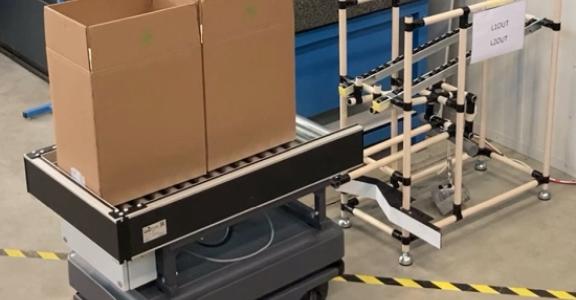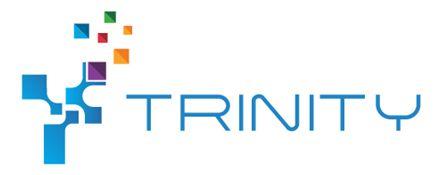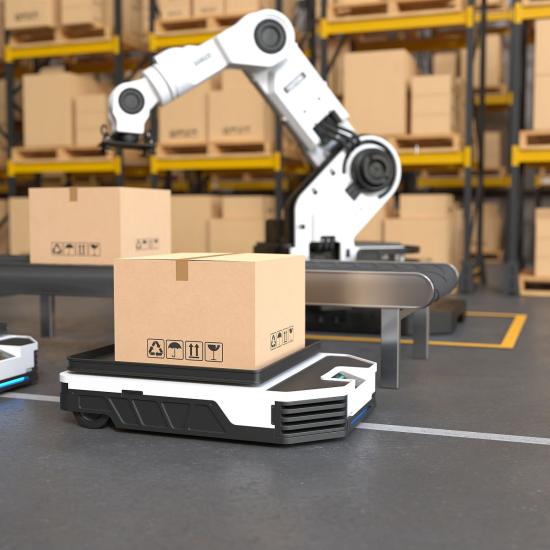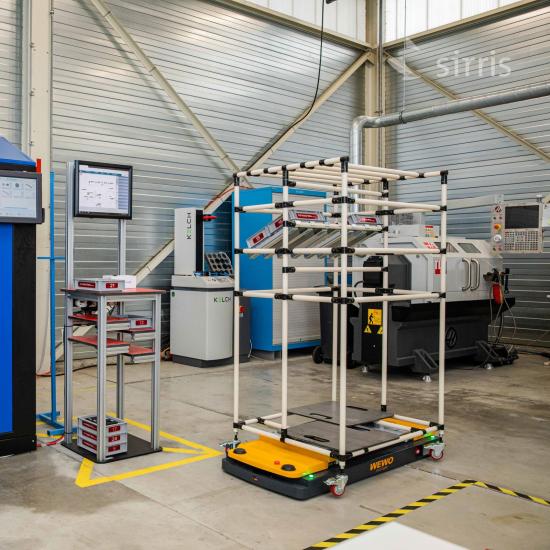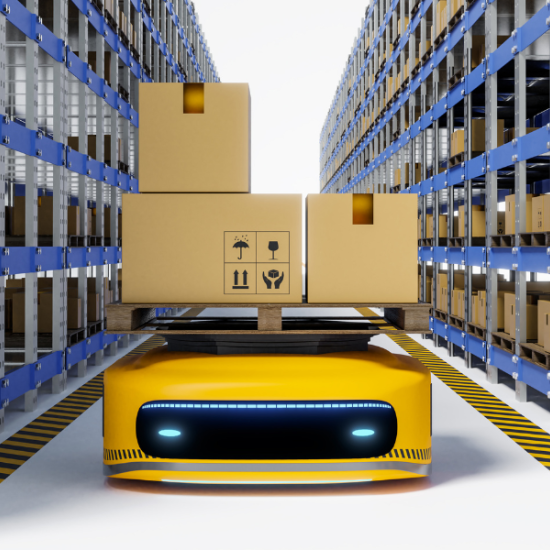The Trinity project focuses on digital technologies and advanced robotics for agile production in future European manufacturing ecosystems. In the meantime, the project has been running for six months and some things have already been realised. A status report.
The shift from mass production to the production of more complex customised products with a high added value in very small series and with ever shorter lead times is making manufacturing more complex. In order to survive as a company, this complexity has to be managed, which requires production systems to become more intelligent and agile. In addition to the flexible automation of production processes, optimising internal production logistics is crucial to becoming more agile. The way internal production logistics is currently organized is the bottleneck to become more flexible.
Meeting logistical challenges
The current flexible production systems must be increasingly supplemented with the digitization and automation of internal logistics processes if the production agility is to be achieved. Fortunately, recent technological developments in autonomous mobile robots (AMRs) create opportunities for flexibly automating internal logistics operations at an acceptable cost. Nevertheless, several specific logistical challenges need to be met if a broader implementation of these technologies in the EU manufacturing industry is to be achieved. AMRs may already enable logistical automation, but the control of the tasks to be performed is too complex, loading and unloading are too slow (coupling), the AMR is only a basic platform without automated processing solutions and it is hard to combine the systems from different suppliers. As a result, the return on investment is unclear, which hinders implementation in SMEs.
With the Trinity project, we aim to address some of these problems by building, implementing and testing a prototype in an industrial use case at Altachem, which is a specialist manufacturer of valves, application tools and accessories for pressure vessels. This is a collaboration with the software company Flagstone. The project has since been running for six months and some things have already been realised.
The current situation
Two demos are being prepared as part of the project: a first demo in the Sirris laboratory in Diepenbeek, followed by a demo setup at Altachem in a real production environment. The AMRs being used for this are an MiR200 and another from WEWO Techmotion.
In addition, pipe-and-joint structures are being used with Karakuri (currently these are as good as ready), for setting-up:
- Docking stations for simulating infeed and output to and from assembly machines
- Docking stations for simulating an infeed-taper or box-sealing machine (for full boxes) and the output of a box former.
- A structure with a dedicated transport container for taking components in bulk to the bunkers of the assembly machines.
The MiR200, fitted with a powered roller conveyor, carries full boxes of finished valves from the output of the assembling machine to the box closing machine and then takes empty boxes from the box former to the infeed of the assembling machine.
After the layout in Sirris' lab in Diepenbeek was prepared for the demo, the first tasks were to pick up empty boxes from the box former and deliver them to the docking station. This also involved the start of tests for controlling the MiR200 via a REST API.
In parallel with this, Flagstone prepared a functional analysis document for the two demos. The development of the MES platform for co-ordinating production orders and transport journeys is also in progress.
Altachem is currently preparing the real production environment to receive the demo while continuing normal production. The locations of the preparation area, the box former and the box closing machine are planned for the production floor so that the AMRs can carry out their transport orders in a realistic production situation. Mechanical adjustments to the input and output of the assembly machines have been designed and discussed with Sirris and will be built in the coming weeks.
During the demo at Altachem, which will run for several weeks, two types of valves will be produced. After the demo, it must be possible to restore the production environment to its original state.
Be inspired!
Are you interested in these demos? Depending on the COVID-19 measures then in place, a public event will take place in March or April. After that, components will be moved to Altachem and the demo will be rebuilt there. We hope to be able to organise a live event in September.
Would you like to know more about the potential for using AMRs in your production environment? On 2 March, we will organize the online event ‘Production Logistics Masterclass 4.0 - Meet the AMRs’, about how to optimally automate your production logistics with autonomous mobile robots (AMRs).
Because of COVID-19, the hands-on part of this will take place in the Diepenbeek laboratory in the Autumn. More information about this masterclass and how to register can be found in our agenda!
